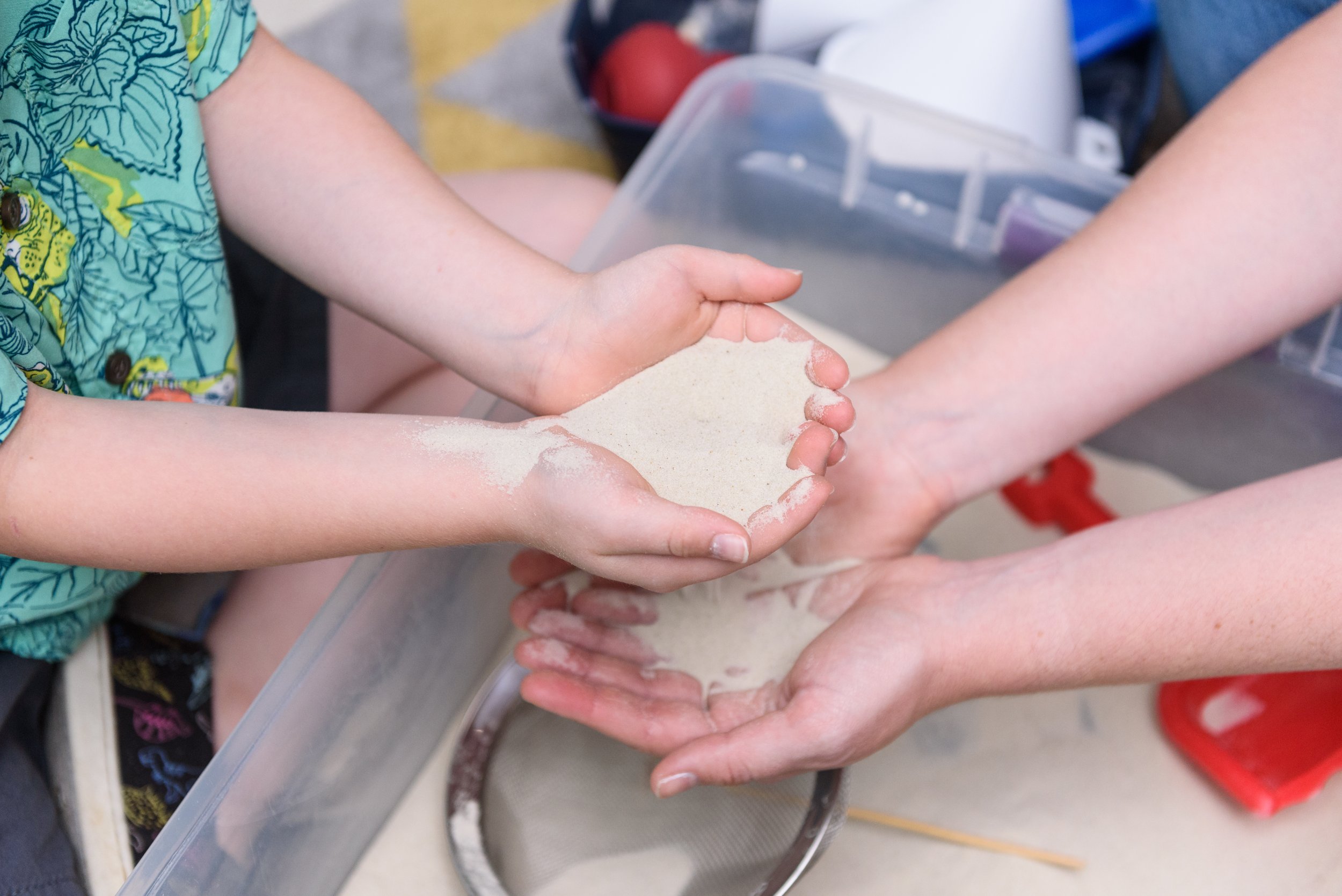
Approach to Teaching
Guided by social constructivist principles, I view knowledge as co-created through dialogue and interactions within the classroom, whether online or face to face. Learning is most effective when students are actively engaged in constructing their own understanding through meaningful experiences and collaborative interactions. My role is to create an environment where students feel empowered to take ownership of their learning, explore diverse perspectives, and develop the skills necessary to become reflective and culturally responsive counselors. I strive to model this process by being an active participant in discussions, facilitating critical thinking, and inviting students to challenge their own assumptions. I emphasize the importance of reflective practices, both self-reflection and peer feedback, as a way to facilitate understanding and enhance professional growth.
As a counselor educator grounded in the power of play, I strongly believe that play has a place in the classroom. When we engage in play, we experience joy and laughter, which naturally alleviate stress and anxiety. Sharing these moments with others fosters trust and a sense of community. These connections empower us to step beyond our comfort zones, making us more open to difficult conversations and vulnerable learning experiences (Forbes, 2021; Leather et al., 2021; Lawrence et al., 2015). This process paves the way for deep and meaningful learning. Traditional education often excludes or devalues certain learners, but play creates a more inclusive environment that engages students who might otherwise feel marginalized (Forbes, 2021). Because play is open, flexible, and creative, it provides opportunities for more students to feel a sense of belonging and to personalize their learning experiences (Lawrence et al., 2015).
Rooted in the principles of andragogy, I believe that adult learners are internally motivated, bring prior experiences to the classroom, and thrive in environments that are problem-centered rather than content oriented. This philosophy holds true whether learning takes place in an online or face to face environment. In counselor education, I implement this through reflective practices, experiential learning opportunities (e.g. role plays, case studies, and supervised clinical placements), and collaborative learning experiences (Sheperis & Perjessy, 2023). These teaching strategies align with the counselor trainees’ developmental needs and promote critical thinking, cultural competence, and self awareness (Sheperis & Perjessy, 2023; Forbes, 2021; Chang, 2020). This approach not only enhances knowledge retention, but also connects theory to practice.
Graduate Teaching Experience
CNSL 7060: Internship in counseling. University of Cincinnati. Cincinnati, Ohio. Summer 2024, Spring 2025.
CNSL 7023: Counseling theories [teaching assistant]. University of Cincinnati. Cincinnati, Ohio. Fall 2024.
CNL 8600: Introduction to play therapy. Wright State University. Dayton, Ohio. Summer 2024, Summer 2025. [Evaluation]
COUN 669: Counseling pre-practicum [Supervising Counselor]. Xavier University. Cincinnati, Ohio. Summer 2024.
Play therapy 101 [Two day graduate elective]. Xavier University. Cincinnati, Ohio. May 2021, May 2022, May 2023, May 2024.
CNSL 7021: Counseling Techniques. [Small group supervisor]. University of Cincinnati. Cincinnati, Ohio. Spring 2024.

